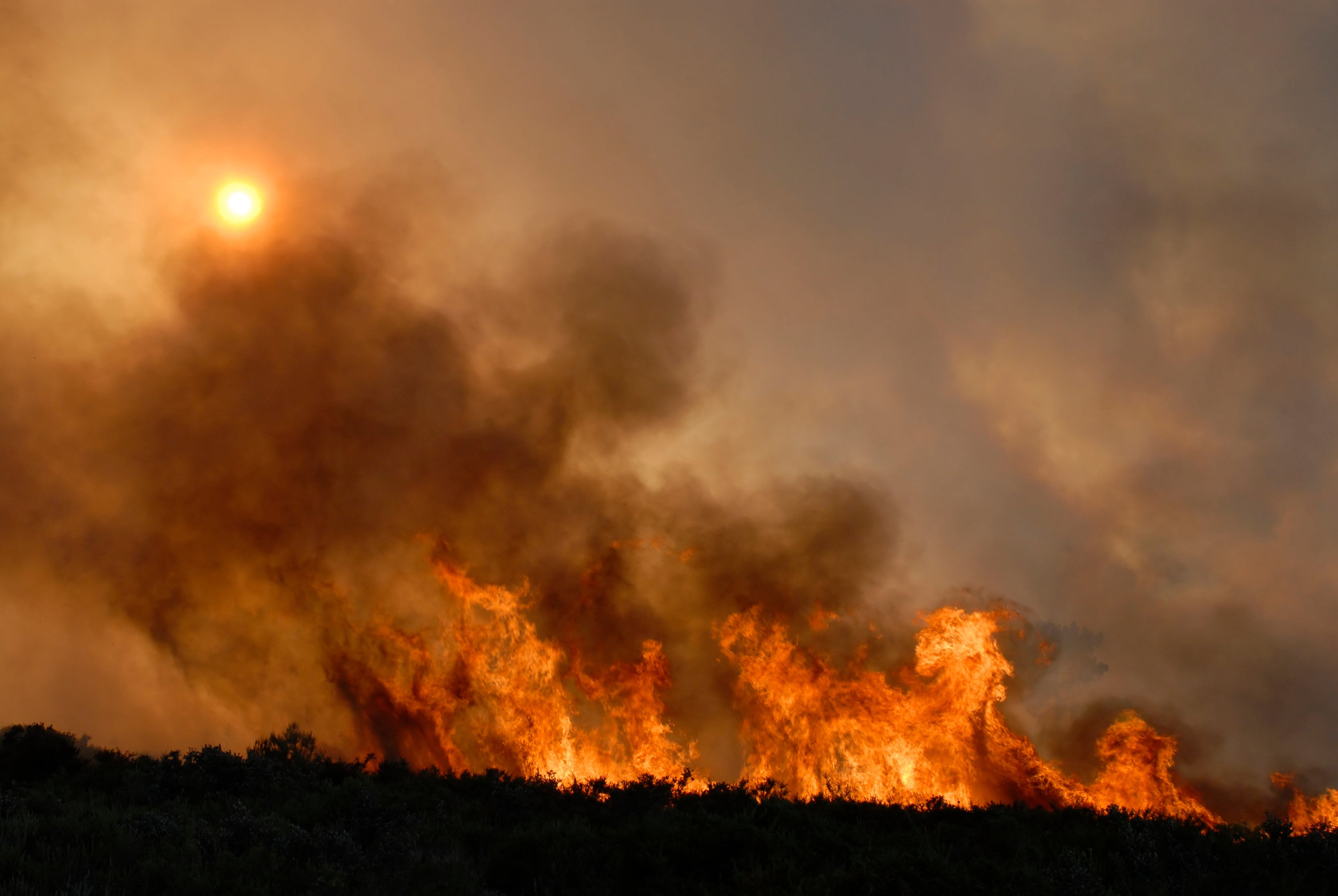Wildfire Smoke and Indoor Air Quality: Protecting Your Home with Lunos HRVs
Each year, Canada’s wildfire season grows longer, more intense, and more unpredictable. From early spring through late autumn, smoke from forest and grass fires can travel thousands of kilometres — blanketing communities in fine particulate matter and reducing air quality to hazardous levels. Even if the flames are hundreds of kilometres away, the health effects can reach your living room.
Why Wildfire Smoke Is a Growing Concern
Wildfire smoke is made up of a complex mixture of gases and microscopic particles produced when wood and vegetation burn. The most dangerous of these are fine particles known as PM2.5, which are about 30 times smaller than the width of a human hair. These fine particles can irritate the lungs and airways, worsening cardiovascular conditions and posing heightened risks for children, older adults, and people with asthma or heart disease. Understanding the effects of wildfire smoke and indoor air quality is essential to protecting your health and your home’s comfort.

When air quality outside deteriorates, many Canadians close their windows and rely on recirculating systems to protect indoor air. Unfortunately, most homes were not designed to handle prolonged exposure to poor outdoor air quality — and simply sealing a building can make things worse. Without active ventilation, indoor air can quickly become stale and carbon dioxide (CO₂)-rich, allowing smoke particles and other pollutants to linger.
Filtration and Ventilation: Two Parts of the Same Equation
It’s important to distinguish between ventilation (the movement of fresh air into and out of a space) and filtration (the removal of particles from that air). Both are essential to maintaining healthy indoor environments, especially during wildfire events.
Traditional ducted systems can recirculate smoky air through shared ductwork or force homeowners to choose between poor filtration or no ventilation at all. The key to maintaining healthy indoor air during smoke events is achieving both — filtered and balanced ventilation.
Lunos decentralized ventilation systems are designed around that principle, delivering fresh outdoor air directly into each room through paired units that recover heat while minimizing the infiltration of smoke and pollutants. When equipped with the F7 Internal Grill (MERV-13), they provide an added layer of protection by filtering even the finest airborne particles that accompany wildfire smoke.
Introducing the Lunos F7 Internal Grill with MERV-13 Filtration
Building on that foundation, the Lunos F7 Internal Grill provides advanced filtration for environments affected by wildfire smoke and other fine particulate matter. Its MERV-13-rated filter captures particles in the 0.3–1.0 micron range — including those produced by Canadian wildfire events — delivering the highest filtration performance available for Lunos systems.
Technical Highlights
- Filter Classification: F7 (ISO ePM1 70 %), equivalent to MERV-13
- Particle Removal Efficiency: > 90 % of particles down to 0.3 µm
- Construction: Pleated synthetic fiber media in a rigid polymer frame
- Maintenance Interval: Replace every 3–6 months depending on air quality and usage
- Compatible Systems: Lunos e², e² Short, and e² 60

Important: The MERV-13 filter cannot be installed in standard Lunos internal grills. It requires the dedicated F7 Internal Grill, specifically designed to accommodate the thicker, high-efficiency filter. Confirm compatibility with your system before ordering.
The F7 Internal Grill keeps your Lunos system performing at its best during challenging air-quality conditions. During extended smoke events, filters may load more quickly — a sign that they’re effectively capturing fine particulate matter, pollen, and other airborne contaminants before they enter your home. Regular inspection and timely replacement help maintain balanced airflow and consistent protection.

Maintaining Optimal Performance
Regular filter maintenance is essential to keeping your Lunos system operating efficiently. Under typical conditions, filters should be checked every few months and replaced as needed — generally every three to six months, depending on indoor and outdoor air quality.
During and after wildfire season, filters may load more quickly as they capture increased levels of fine particulate matter. Inspect them more frequently during these periods and replace when they become visibly discoloured or when airflow noticeably decreases. Lunos filter housings are easily accessible and can be swapped in minutes without tools.
Important: Do not wash F7 (MERV-13) filters. These high-efficiency filters are designed for dry use only; vacuuming or washing can damage the fine fibers. Always install new filters for best performance. (Standard MERV-3 filters supplied with every unit can be gently rinsed and reused.)
Keeping a small supply of replacement filters on hand ensures you’re prepared before the next smoke event, rather than waiting until outdoor conditions worsen.
Building Resilience Against Future Smoke Events
As wildfire seasons grow longer and air-quality events become more frequent, protecting indoor air has become a year-round priority for Canadian homes. The Lunos F7 Internal Grill (MERV-13) plays a key role in that protection — helping homeowners and building operators respond quickly to deteriorating outdoor conditions with high-efficiency filtration that works within an energy-efficient, decentralized system.
Clean air isn’t just about comfort — it’s about maintaining a healthy living environment even when the air outside is unsafe. By keeping spare filters and staying proactive about maintenance, homeowners can ensure their Lunos system continues to deliver clean, balanced airflow throughout wildfire season and beyond.
Explore the Lunos F7 Internal Grill (MERV-13) and learn how it can strengthen your home’s air-quality protection during wildfire season.
Contact Lunos Canada for product guidance or replacement-filter options.

0 comments